12 foreign nationals arrested in drug raid at Woodlands migrant worker dormitory
Officers from the Central Narcotics Bureau and other agencies swept through the compound from late Thursday (Nov 27) into the wee hours of Friday morning.
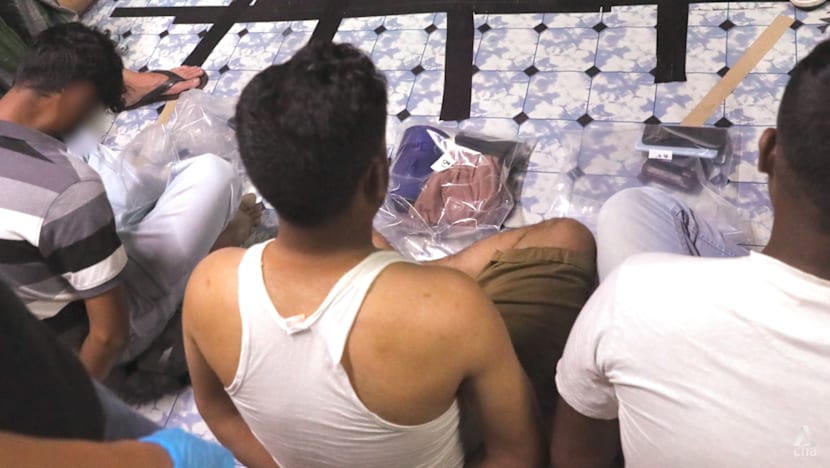
Suspects arrested during a drug raid at a Woodlands migrant worker dormitory seated on the floor with their belongings in sealed bags before them on Nov 28, 2025. (Photo: CNA/Mak Jia Kee)

This audio is generated by an AI tool.
SINGAPORE: Twelve male foreign nationals were arrested for suspected drug-related offences in an overnight raid lasting more than four hours at a migrant worker dormitory in northern Singapore.
Acting on information received, officers from the Central Narcotics Bureau (CNB), together with other authorities, swept through the Woodlands compound from late Thursday (Nov 27) into the wee hours of Friday morning amid periods of heavy downpour.
The 11 Bangladeshis and one Myanmar national are between 23 and 40 years old. One of them, a 34-year-old Bangladeshi man, was arrested for suspected drug trafficking and drug consumption offences, the CNB said in a press release issued on Friday.
In a first, the media was allowed to accompany officers during a dormitory enforcement operation. Although led by CNB, the operation also involved the Singapore Police Force, Health Sciences Authority (HSA), Ministry of Manpower and the Immigration and Checkpoints Authority as part of efforts to clamp down on illegal activities, including drug offences and other crimes.
Eight reporters followed scores of CNB officers - some in plain clothes, others in vests - as they searched rooms where migrant workers resided.
Past midnight, as heavy rain eased to a drizzle, the media were allowed into two rooms where suspects were arrested after the scenes were secured.
In the first room, located on the second floor of a block, five handcuffed men were being held on suspicion of drug-related offences. A few sat in a row on the floor with their belongings - mobile phones, wallets and identity cards - placed in sealed bags before them.
The room contained six bunk beds arranged along three walls. The bunks, which appeared to hold clutter rather than mattresses, were separated by metal lockers draped with hangers and clothing, with luggage bags stacked on top.
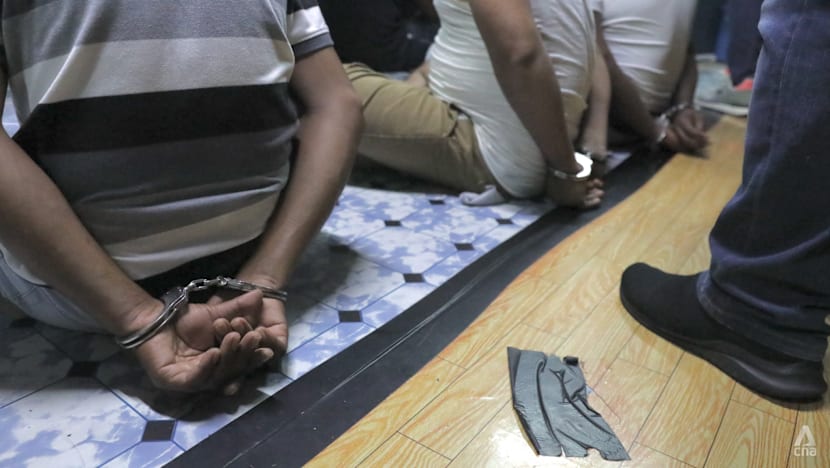


With the media present, a few suspects were instructed to point out their lockers or beds, where gloved officers conducted thorough searches of their belongings.
One officer sifted through piles of clothing and various paraphernalia stored on several levels of a locker, assisted by another officer who shone a light into the compartment. The suspect watched and responded to questions about the items and where he slept.
Another officer then lowered a black suitcase from the top of the locker to the floor, where he and a colleague examined its compartments and patted down its lining. They did not appear to find anything of note.
Officers also searched the clutter on the beds as suspects looked on. Some items were added to sealable bags, which were then labelled.
Meanwhile, the room’s seven other occupants sat quietly in two rows near the door as they waited for the operation to conclude.

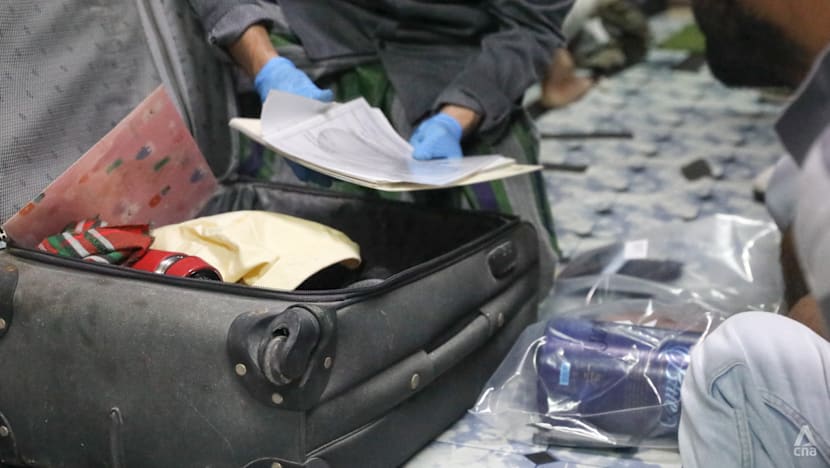
Within 10 minutes, the suspects were asked to stand and escorted out of the rooms.
When the media entered the second room, which was on the ground floor of a separate block, one man was seated on the floor in the corner of the room surrounded by CNB officers. This room was of a similar configuration to the first, with clothing hung on all walls.
He answered the officers’ questions while the other residents sat in a loose scatter around the room, calmly watching the proceedings.
The man was handcuffed shortly afterward.
Officers were seen placing yellow- and red-coloured items suspected to have been used for drug consumption - including a glass bottle, a cut straw and a rubber tube with a mouthpiece - into sealable bags.
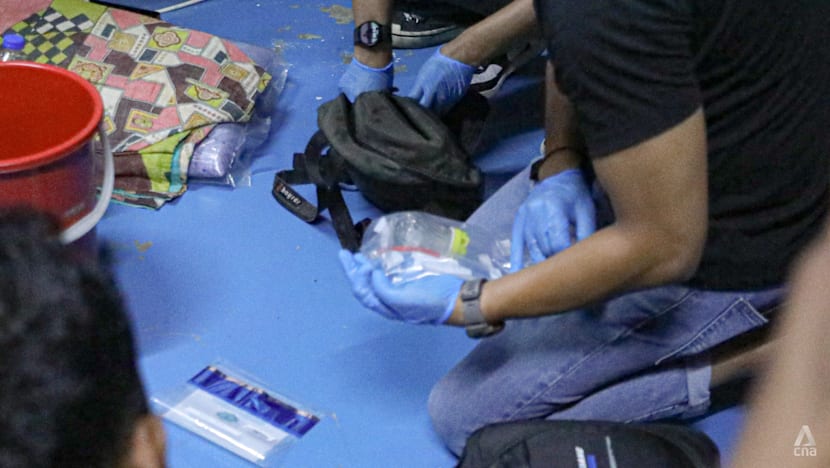
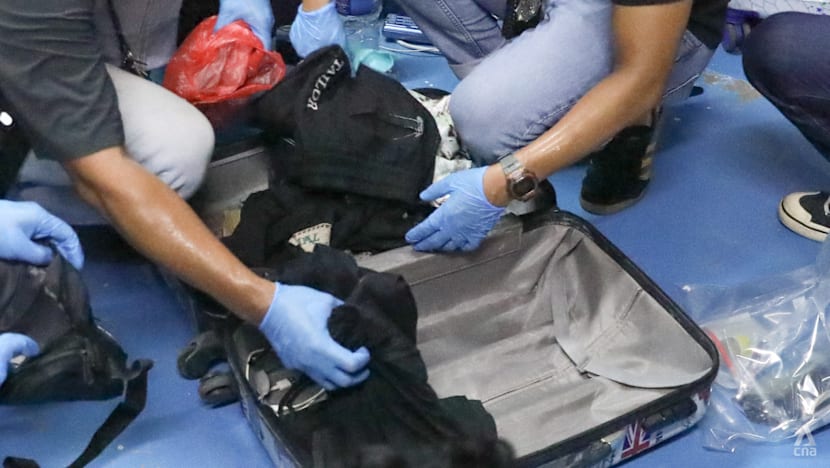

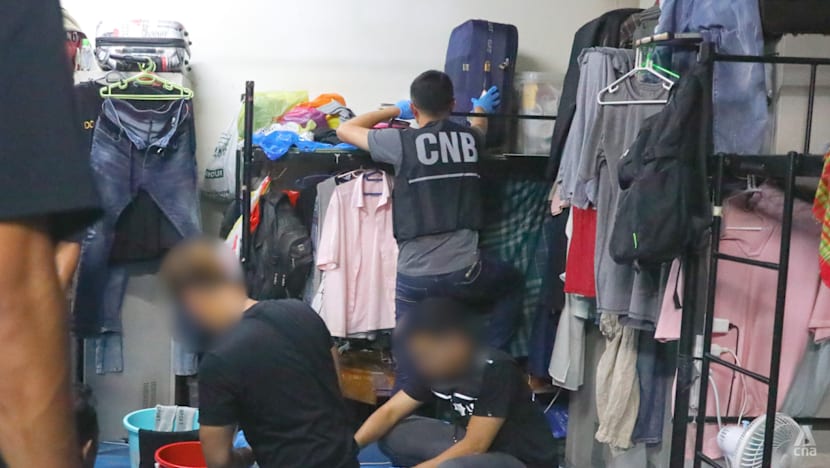
Similar to the first room, officers went through luggage containing clothes, shoes and smaller bags, while others examined the cash, bills and cards in the suspect’s wallet before placing them, along with his mobile phone, into a sealable bag.
These items were then placed in a larger bag with the other exhibits.
Once the officers were done searching the bags, they returned all the contents and set them aside.
The entire drill took about 10 minutes, after which the suspect was helped to his feet and led out of the room.
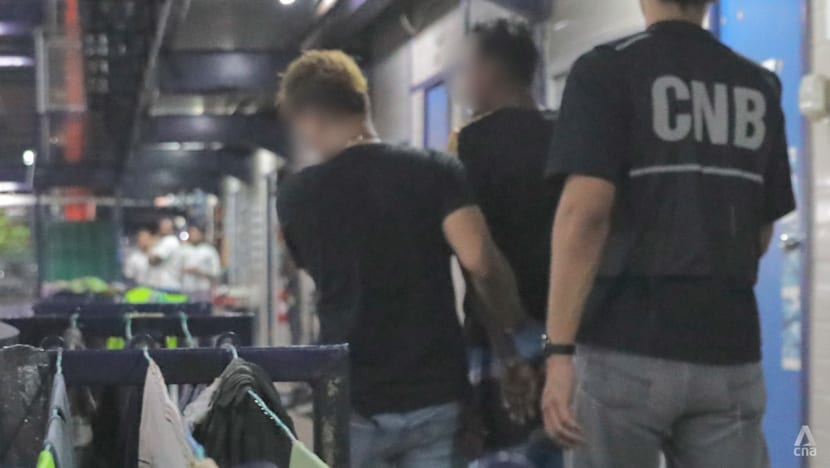
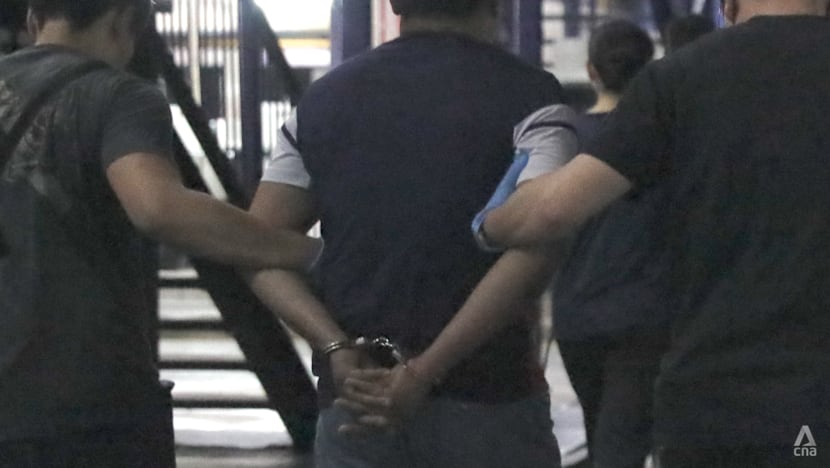
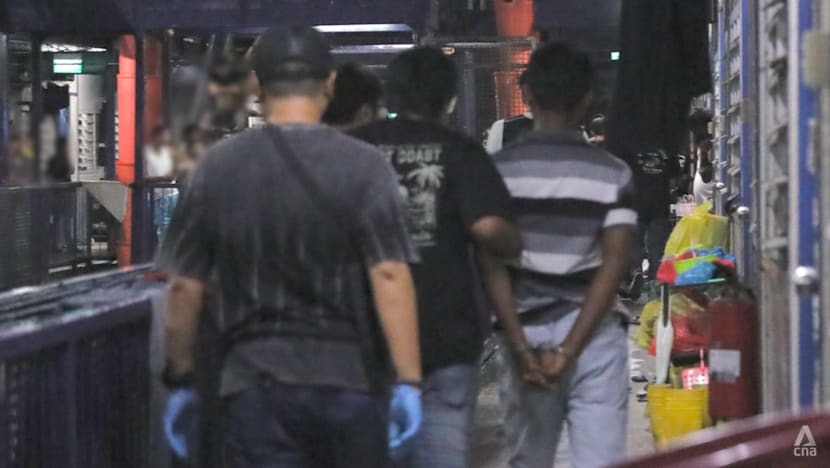
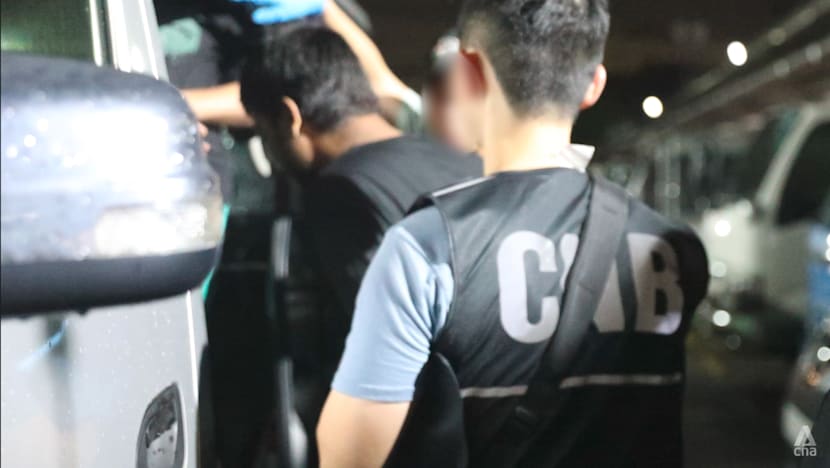
The suspects were then taken to another area in the dormitory for processing before being transported away in vans. The media observed four suspects, each escorted by an officer, being handed into two separate vans that subsequently left the compound.
Speaking to the press on the sidelines of the operation, Superintendent Xanthus Tong Hyeng Ji, Deputy Commanding Officer of CNB Enforcement J Division, said CNB remains committed to upholding drug laws and safeguarding the community, including migrant workers.
"This operation is part of our law enforcement efforts against drug abuse and trafficking and other criminal and illicit activities. Such activities will not be tolerated and those involved will be dealt with accordingly," Mr Tong said.
"Drugs have no place in Singapore – be it in the community, workplace, or residential premises – our enforcement efforts are geared towards early detection and intervention. Early detection allows any risks – whether in the form of drug abuse or illicit activities – to be addressed quickly and prevent the spread, given the harmful and addictive nature of drugs."
Investigations for all arrested suspects are ongoing, CNB said.
Separately, the HSA said it found three foreign nationals, aged 20 to 40, with 10 sachets of smokeless tobacco. They were issued fines on the spot, a spokesperson said.
She added that the possession, purchase and use of such tobacco products is prohibited in Singapore under the Tobacco (Control of Advertisements and Sale) Act. If convicted, a person can be fined up to S$2,000 (US$1,540).
















